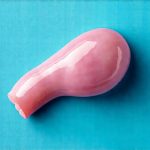Urological health and gut health are often treated as separate entities, but increasingly, healthcare professionals recognize their profound interconnectedness. A healthy digestive system plays a critical role in overall well-being, including the function of the urinary tract. Inflammation, imbalances in gut bacteria (dysbiosis), and compromised intestinal barrier function can all contribute to urological issues – from increased urgency and frequency to more serious conditions like interstitial cystitis or recurrent UTIs. Conversely, chronic urological problems can sometimes be exacerbated by dietary factors that negatively impact gut health. Understanding this bidirectional relationship is key to adopting a holistic approach to wellness, one where food isn’t just about nourishment, but also about supporting the delicate balance within and between these vital systems.
This article will explore how specific foods can simultaneously benefit both urological function and promote a thriving gut microbiome. It’s important to remember that dietary needs are individual; what works well for one person may not work for another. This isn’t about restrictive dieting, but rather making informed choices and incorporating nourishing options into your everyday meals. The goal is to create a sustainable pattern of eating that supports both urinary tract health and digestive wellness, leading to increased comfort, vitality, and overall quality of life. We will focus on foods generally considered safe for most urological conditions (excluding acute flare-ups where individual sensitivities must be prioritized) while simultaneously offering significant benefits to the gut.
Foods That Harmonize Urology & Gut Health
Many foods naturally support both urinary tract health and a robust gut microbiome. Berries, for instance, are excellent examples. Cranberries, often associated with UTI prevention due to their A-type proanthocyanidins (PACs), also contain prebiotic fiber that feeds beneficial gut bacteria. Blueberries and raspberries share similar qualities, offering antioxidants that combat inflammation in both the urinary tract and the digestive system. This dual action is particularly valuable as chronic inflammation can contribute to both urological symptoms and gut dysbiosis. Incorporating a handful of berries into your breakfast or snacking throughout the day provides a simple yet effective way to nurture these interconnected systems.
Fermented foods are another cornerstone of this dietary approach. Yogurt (unsweetened, with live cultures), kefir, sauerkraut, kimchi, and kombucha all introduce beneficial bacteria directly into the gut, strengthening the microbiome. A diverse and thriving gut microbiome is essential for immune function, nutrient absorption, and reducing inflammation – all factors that impact urological health. Moreover, some fermented foods contain compounds that may have direct benefits to the urinary tract; for example, certain strains of Lactobacillus found in yogurt are thought to help prevent UTIs by restoring a healthy vaginal microbiome (for women). It’s crucial to introduce fermented foods gradually to avoid digestive upset and choose options low in sugar and sodium. Learning about daily habits that protect urinary tract health can also support this process.
Finally, fiber-rich vegetables play a significant role. Foods like sweet potatoes, broccoli, carrots, and spinach provide soluble and insoluble fiber which supports regular bowel movements – essential for eliminating toxins and preventing constipation. Constipation can put pressure on the bladder and contribute to urinary issues, while also disrupting gut health. These same vegetables are packed with vitamins, minerals, and antioxidants that combat inflammation throughout the body. Choosing a variety of colorful vegetables ensures you’re getting a broad spectrum of nutrients supporting both urological and digestive function.
The Role of Hydration & Water-Rich Foods
Adequate hydration is paramount for both urological and gut health. Water helps flush out toxins from the urinary tract, preventing bacterial overgrowth and reducing irritation. It also keeps the intestinal tract moving smoothly, aiding in digestion and preventing constipation. However, simply drinking enough water isn’t always sufficient. Incorporating water-rich foods can significantly contribute to overall hydration levels.
- Cucumbers*: Composed of about 96% water, cucumbers are incredibly hydrating and contain electrolytes that support kidney function. They’re also gentle on the stomach, making them a good choice for individuals with sensitive digestive systems.
- Watermelon*: Another excellent source of hydration, watermelon also contains lycopene, an antioxidant known to reduce inflammation. Be mindful of portion sizes due to its higher sugar content.
- Celery*: Containing both water and fiber, celery promotes healthy digestion and acts as a natural diuretic, helping to flush the urinary tract.
Maintaining consistent hydration is best achieved by sipping on water throughout the day rather than consuming large amounts at once. Listen to your body’s signals of thirst and adjust intake accordingly. Consider carrying a reusable water bottle as a reminder to stay hydrated. You can also explore low-sugar hydration hacks that support the bladder for optimal fluid intake.
Minimizing Urological Irritants & Gut Disruptors
Certain foods can exacerbate urological symptoms or negatively impact gut health, and minimizing these is crucial for optimal wellness. Common urological irritants include caffeine, alcohol, spicy foods, citrus fruits (for some), artificial sweeteners, and highly processed foods. These substances can irritate the bladder lining, leading to increased urgency, frequency, and discomfort. Similarly, a diet high in sugar, processed foods, and unhealthy fats can disrupt the gut microbiome, promoting inflammation and weakening the intestinal barrier.
- Identify Your Triggers: Keep a food diary to track what you eat and how it affects your symptoms (both urological and digestive). This will help you pinpoint specific foods that may be problematic for you*.
- Focus on Whole Foods*: Prioritize unprocessed, whole foods whenever possible. These provide essential nutrients without the additives and chemicals found in many processed products.
- Limit Sugar Intake*: Excessive sugar consumption feeds harmful bacteria in the gut and can contribute to inflammation. Opt for natural sweeteners in moderation or explore alternative ways to satisfy sweet cravings (e.g., berries).
Understanding foods that help urine volume stay consistent can also assist with managing bladder control.
The Importance of Prebiotics & Probiotics
Prebiotics and probiotics are essential components of a healthy gut microbiome, which, as we’ve established, is intimately linked to urological health. Probiotics are live microorganisms that provide beneficial bacteria to the gut, while prebiotics are non-digestible fibers that feed those beneficial bacteria. A balanced ecosystem within the gut supports immune function, reduces inflammation, and enhances nutrient absorption – all of which contribute to a healthy urinary tract.
- Probiotic Sources: Incorporate fermented foods like yogurt, kefir, sauerkraut, kimchi, or kombucha into your diet. Consider a probiotic supplement if dietary intake is insufficient (consult with a healthcare professional before starting any new supplement regimen).
- Prebiotic Sources: Consume prebiotic-rich foods such as onions, garlic, leeks, asparagus, bananas, oats, and apples. These provide the fuel that beneficial bacteria need to thrive.
- Synergistic Effect: Combining probiotic and prebiotic sources (e.g., yogurt with berries) maximizes their benefits, creating a synergistic effect that promotes gut health and supports urological function.
It’s important to note that individual responses to dietary changes can vary significantly. Paying attention to your body’s signals and consulting with a healthcare professional or registered dietitian are crucial steps in developing a personalized eating plan that supports both your urological and digestive well-being. This article provides general information and should not be considered medical advice. Focusing on plant-based shakes that support gentle prostate health can also add to a holistic approach.





















